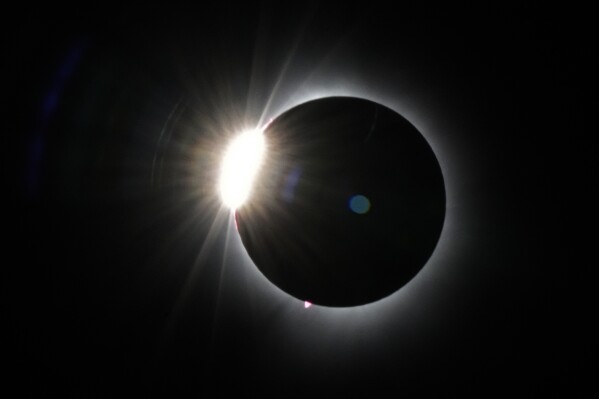I was 21 when I climbed my first mountain. It was Kilimanjaro in East Africa. I'd never done anything remotely like that. It really excited me.
I have a certain personality, maybe even genetic makeup, that has predisposed me to be extremely curious.
I had a multi-decade career of mountain climbing, which led to even more adventures along other axes, like learning how to fly aircraft, and then joining the navy, seeing the world, and eventually marine exploration.
Over time, if you really love exploration, you do it in any number of ways. It just feeds off itself.
One of my heroes in exploration is Captain Don Walsh. He was the first person to reach the bottom of the ocean, and he said that exploration is "curiosity in action". I've just always lived that way and I have a very curious mind.
There's great satisfaction in learning and seeing new things, and experiencing this incredible world that we live in.
I completed the Explorers Grand Slam in 2017, which involves climbing to the highest summits in all seven continents and reaching both the north and south poles.
I think most people who have done the grand slam will put climbing Mount Everest up there at the top of their most memorable experiences.
As anyone who has climbed Everest will tell you, it is a very difficult, very dangerous mountain. The number of people climbing Everest is growing, but that doesn't take away from the challenge of getting to its summit.
It took me two tries. Some people never make it. And, of course, others don't come back at all.
You do everything you can to prepare for that climb with your team and the sherpa. You deal with the extreme and changing weather. And the physical, mental and even spiritual exhaustion you feel when you reach the 8,000 meter peak is unforgettable.
It's a great feeling of accomplishment, but it has to be done carefully and with a great team or you are taking a significant risk.
The feeling as you climb is a relentless assault on your physiology. The most difficult thing I've ever done was climbing up above 8,000 meters in the death zone—which is correctly named.
When you're in the death zone, there is so little oxygen that if you stop and rest, you're not recovering, you're only dying more slowly. The human body cannot function. At least, most normal humans cannot function or survive at that altitude.
It takes so long the climb Everest because you're trying to train your body to survive minimally. Even on oxygen, at that altitude you lose an enormous amount of weight because you cannot consume enough food, so you're consuming yourself: You're hypoxic.
It feels kind of like you're drunk. You have difficulty thinking and making good judgment calls.
It's an incredibly brutal environment, like you're locked in hand-to-hand combat with Mother Nature itself. You must have the will to keep going up.
Even when you feel like you're a frozen popsicle, and every fiber of your body is telling you to just turn around: You keep going.
When you reach the top of Everest, there are three emotions in rapid succession. The first is one of great relief because it takes almost two months to climb Everest and you're always worried about getting sick or having an accident or the weather.
So when you finally get there and you're completely exhausted, you feel a sense of relief: Oh my goodness we made it in and now we can go down.
The second feeling is a mixture of great achievement and happiness and satisfaction, because you've actually been to the summit of Everest.
Unfortunately, on my ascent, we were in a storm so we could only see a couple of hundred meters in all directions. We didn't get the great vista at the top, but we had seen that on the way up.
And the third emotion is the sense that this is a really dangerous place and we need to get down safely. Any good mountaineer knows that most accidents occur on the way down, not the way up.
So there's a bit of anxiety. We're only halfway there; we still have a long way to go to get back safely.
In 2019, I completed the Five Deeps Expedition, in which I traveled to the deepest points in all five oceans. That was, of course, much different than mountaineering, which is more of a physical and logistical set of challenges.
This was more cerebral. It was more financial and technical. The Five Deeps Expedition started as a technical mission to build a submersible that could repeatedly dive to the bottom of the ocean, which had never been done before.
Having that capability meant you could dive anywhere on the sea floor multiple times safely with scientists who could do research. That was the goal.
It was challenging but very exciting to take a submersible craft of this design myself as the test pilot.
It had never been tested fully assembled in that extreme environment at the bottom of the ocean because it was simply not possible to do so. I was a little anxious on the first dive as I heard every strange noise that the sub made at those extreme depths.
But the vessel worked, and it worked repeatedly. It was incredibly satisfying to have taken something from concept to piloting it personally in one of the most extreme environments on Earth.
Unfortunately, though, within 15 minutes of my first dive to the bottom of the ocean, I saw a piece of human contamination. That was a punch to the gut: I had been beaten down there by our detritus from the surface.
But I also saw much more wildlife than I expected. I saw polychaete worms coming out of the silt. I saw quite a number of holothurians; small sea cucumbers that live on the bottom of the ocean eating anything that drops from above. There were things that looked like urchins living on the rocks.
So even though it was an incredibly brutal environment—16,000 pounds of pressure per square inch in freezing cold, corrosive saltwater—you had life.
I think if there's life on other planets, it'll look a lot more like what I saw down there than what you see up here on land.
Having been to the highest summits and the deepest depths, in 2022 I went to the third point in the triangle of exploration: I traveled into space on Blue Origin's New Shepard rocket.
Space was like going to an incredible rock concert. You get on top of what is effectively a 10-storey bomb. You're strapped in, all systems are checked, and you start ascending to space at Mach-3. Vertically.
The first time I ever went supersonic was Mach-3, vertically, in a rocket.
The booster separates and you're kicked into space. And there's no question that you're in space. It is a black sky with a yellow sun, and you are looking down on the Earth.
You see the very thin sheen of the atmosphere, and you realize how fragile the world is. You're floating in zero gravity, and before you know it, you have to strap back in, and now you're descending through the atmosphere at Mach-5. You're waiting for the parachutes to open and then you're back on the ground.
It was an incredibly exhilarating experience. But there are risks involved. You're on a rocket and they're not perfect, and we're not in pressure suits, so if there had been a problem with the capsule's pressurization it would have been a really bad day.
Apollo astronauts described what they called the overview effect, which is the psychological phenomenon of a change in your perspective when you see the Earth from space.
I do now believe it's a very real thing. You get a bit of that climbing very, very high mountains as well. But what it entails is you see no borders. You see how thin the atmosphere is.
It really makes you appreciate at a visual level that we live on a spaceship and we're all on it together. That sounds trite, but it is a real feeling, and you come back wanting to take care of the Earth better because it's so beautiful.
You realize that we need to take care of each other better too because we are all on this place that we really can't get off. Why do we do such awful things to each other when we're all in it together?
It affects different people to varying degrees, but I think it's a real phenomenon and that's why I'm a huge proponent of getting people into space, especially those who represent us in governments. It only has a very beneficial effect on one's perception of our world and how we should live in it.
I've been doing explorations and flying aircraft since I was 19 years old. Over time, you can train yourself in how to deal with fear effectively, and so it doesn't become panic.
Panic is not useful at all. But fear can be used to enhance your senses and focus you. As you move through life doing these things, you manage risk in the same way as any other dangerous thing.
Across all these different endeavors, you do the math. You study the physics, you mitigate every risk that you can, and you plan for things that can go wrong.
My greatest hero in exploration is Roald Amundsen, the Norwegian who was the first to reach the South Pole. If you study his expeditions, he conducted them exactly like that: He trained assiduously, studied his equipment, made personnel changes.
He was very methodical and wanted no drama or bad events on his expeditions. There were no heroics, because heroics meant the planning hadn't been done as well as it should have been. So that's how I've conducted my expeditions.
Many of my crew have often heard me say: Let's go out and have a really boring expedition today.
It's very difficult to pick out a favorite expedition or moment from my experiences, just because they're all so different. It's truly like trying to pick: What was your favorite meal of all time?
All one can do is point to some of the more memorable ones as part of a collection.
I know I was very happy and excited to find the deepest shipwreck in history: The USS Samuel B. Roberts. It was extremely difficult to do because wrecks are tiny and the ocean is enormous.
Coming on that wreck for the first time since it had gone down in 1944; seeing it in virtually pristine form with ammunition still on the deck; and being able to survey it so we could tell its story again of its heroic battle—things like that were very special.
But that's just one of many wonderful experiences I've been very privileged to have.
There are so many avenues left for exploration. On the conventional side, I would love to keep diving in deep ocean trenches. There are still many I've never been to. I love aviation, so I'm working on some projects to design and build novel aircraft.
And in the business realm, I'm an investor in Colossal Biosciences, which is trying to de-extinct species like the woolly mammoth and the dodo bird with a view to conserving our planet's critically endangered species.
I'm CEO of a biotechnology company where we're trying to investigate ways to cure diseases. There are so many different avenues for so-called exploration that continue to fascinate me.
Because, again, it really is about being curious, and applying that curiosity to difficult problems and seeing them through to a solution.
Victor Vescovo is an explorer and investor.
All views expressed are the author's own.
As told to Shane Croucher.
Do you have a unique experience or personal story to share? Email the My Turn team at myturn@newsweek.com.
Disclaimer: The copyright of this article belongs to the original author. Reposting this article is solely for the purpose of information dissemination and does not constitute any investment advice. If there is any infringement, please contact us immediately. We will make corrections or deletions as necessary. Thank you.



